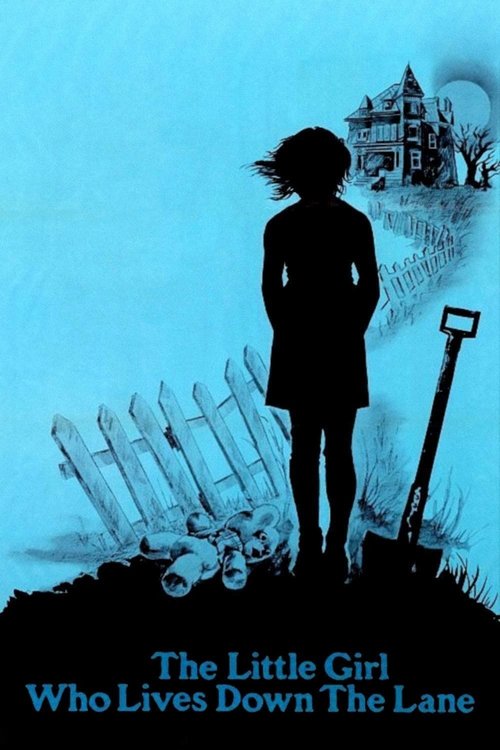In The Little Girl Who Lives Down the Lane, Jodie Foster plays a young teenage girl named Rynn. Rynn’s mother is absent and her father is extraordinarily hard to get ahold of. The adults are always asking to speak to him, but he’s always either sleeping or in his office, and Rynn won’t disturb him.
Rynn’s dad is so hard to get ahold of because he’s dead. Foster lives alone in the large New England house, teaching herself with books and foreign-language records, paying for groceries with traveler’s checks stashed in a safe-deposit box, and trying to keep her head down.

Nowadays she could just order from Amazon.
Cora and Frank Hallet (Alexis Smith and Martin Sheen) complicate this plan. The politically powerful Cora is Rynn’s landlord, and she’s a genuine terror. When we first see her, she’s dropping by to catch dear dead dad. Not only does she not knock, she starts rearranging the furniture. “Where did this come from?” she sniffs at a chair. “This belongs here,” she says, moving a coffee table approximately twelve inches. “That table and braided rug belong over there…”
Cora is too nosey and too much of a control freak to leave Rynn alone, much to Cora’s detriment.
This scene closely mirrors the opening scene with her son, Frank. In the opening scene, Frank pushes his way into Rynn’s house during Halloween’s Trick-or-Treating hours. He acts suspiciously indeed. “You’re a very pretty girl, you know that? Pretty eyes, pretty hair.” Rynn, who is chronologically thirteen but mentally far older, sees through him immediately.
Maybe this explains the reason for Cora’s visit. After several minutes of barely passive passive aggression, she warns: “If my son should come back and your father isn’t here, it might be better if you didn’t let him in,” she says.
“He didn’t ask my permission the first time,” says Rynn.
Rynn has drawn blood. “I hope you didn’t intend that to sound rude,” Cora says.
“I’ll tell my father you said not to let your son inside the door,” Rynn responds.

Whose house? Rynn’s house!
In another movie, watching a thirteen-year-old Jodie Foster match Noir veteran Alexis Smith in banter would be fun, but everything works in this film to generate an unsettling sense of threat and dread. We are conscious both of how young Rynn is — Jodie Foster was actually thirteen, not just playing thirteen — and how, in the absence of adult supervision, everyone finds her either a threat or their own private property. Part of this is the performances; Smith plays Cora without flamboyance or melodrama. Martin Sheen’s Frank seems a bit more affected, but then Frank is a character who is always acting to begin with (if that makes sense).
Foster’s performance defies explanation or expectation. The steel that characterizes Clarice Starling is here, too. The movie couldn’t work without it. Key to the movie’s theme of children’s rights and emancipation is Foster’s ability to convince us Rynn is, except for the detail of age, a fully functioning adult person. And for the running time of the film, Foster, director Nicolas Gessner, and screenwriter Laird Koenig do a damn fine job.
In the space afterwards, I was having more thoughts about the movie. Can Rynn be self-determining if constrained by the prejudices and decisions her father made? Yes, Rynn acts like an adult. And she can do many adult things. But she would undoubtedly benefit from some sympathetic care and advice.

Frank in his “no, really, I am the boss of you” mode.
Lots of content warnings for this movie. Although there is practically no gore, the themes are mighty heavy and the characters upsetting because their performances are so believable. There’s also a controversial sex scene, but the controversy surrounding it underscores the movie’s theme about the adult world’s difficulty accepting the self-determination of juveniles.
It’s hard to recommend this movie because I like to recommend fun times, but I am glad I watched this one. I still have no intention of watching it again, ever.

